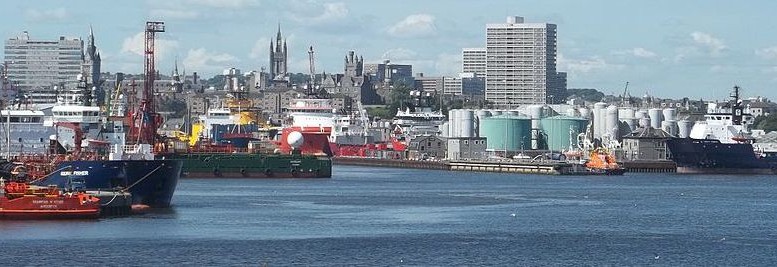The strong pound — which can make Scottish exports more expensive — and the weak oil price have combined with other factors to lead to a downgrade of the latest economic growth forecast for Scotland by a leading think tank.
According to the latest economic commentary from Strathclyde Business School’s Fraser of Allander Institute, Scotland is experiencing export difficulties as a result of “a relatively high pound sterling and lingering effects of the low oil price on Scottish onshore activity.”
These factors have contributed to “stilted” growth in 2015, the report said.
“This slowdown in recovery during the first half of the year has resulted in a significant downward revision in (2015) GDP growth (for Scotland) to 1.9% – a 0.6% drop from the June forecast,” said the report, which is sponsored by business consultants PwC.
“The forecast for 2016 is 2.2% with 2017 expected to reach 2.5%.”
The institute said weakening export demand and the strength of sterling has also had an impact on manufacturing growth, both in Scotland and the UK, with the crisis in the UK steel industry a strong example.
These concerns could be made worse by a slowdown in China — demand from China has helped drive global economic growth in recent years — and any increase in US interest rates, which would have global repercussions.
“With growth slowing right across the UK and especially in Scotland, now is the time for the Chancellor to rethink his cuts to tax credits and for the Bank of England to continue to hold rates,” said Brian Ashcroft, Emeritus Professor of Economics at Strathclyde Business School.
“Scotland’s weak productivity and poor export performance necessitates that the Scottish Government tackle these issues more directly if it is to raise the long-term growth rate of Scotland’s economy.”
Paul Brewer, PwC Government and Public Sector leader in Scotland, said: “While it is encouraging to see Scottish Government’s ongoing focus on infrastructure investment and hard evidence of the positive impact this is having on our construction industry, unless this is sustained over a long period of time there is a risk we will become increasingly exposed to shortfalls in the service sector.”
Brewer added: “We are also seeing the effects of the low oil price manifesting themselves across other onshore sectors from engineering to hospitality – this is no longer the preserve of the oil and gas industry. Indeed, our latest UK hotel report noted a double-digit fall in occupancy levels and revenue per room across Aberdeen in the year to July 2015.
“With oversupply in the oil market looking likely to continue in the medium-term, it’s crucial that the oil and gas industry swiftly adjusts to this ‘lower for longer’ scenario, working closely with the regulator and Government to protect the long term future of Aberdeen as a global hub.”
